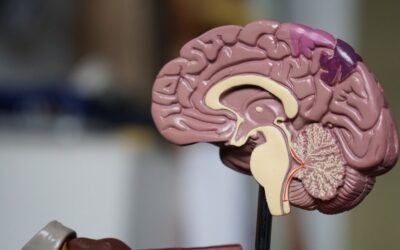There is a teapot flying around the moon, too small to be seen by any modern telescope. Much closer to us, there are birds flying through the sky.
One of these claims is, of course, nonsense. Last time we checked, there was no crockery orbiting anything in space.
Even though we know with certainty that one of those claims is false, though, it’s important to consider a couple of questions: How do we know what we know? And what does this tell us about the way we think?
Why is scientific research important?
1. To make informed decisions from daily observations
The flying teapot analogy was invented by British philosopher Bertrand Russell, to illustrate the absurdity of claims that cannot be tested. This means that the claim is not falsifiable: it cannot be proven wrong, even if it is wrong. Note that in Russell’s time, before the era of space exploration, his potential teapot was undetectable by its very definition. It is a prime example of an unscientific claim.
In contrast to this, we can test the claim about the existence of birds. We merely need to go outside to see and hear them. As long as we can do one or both of those things, we won’t change our minds regarding their existence.
Similarly, if someone told us it is safe to cross a busy road when the traffic light shows red, we would hardly believe them as long as we could see the cars rushing in front of us that stop when the pedestrian signal turns green.
What we mean to suggest by all of this is that we are always drawing conclusions based on evidence. We are experimentalists in daily life.
2. To validate knowledge through tangible evidence
Of course, many things we learn about the world are not directly testable. For example, when we learn about Ancient Roman history in school, we are simply told about what happened centuries ago and we don’t see the evidence of it in our daily life. Still, there are solid relics from that time; old buildings survive in some places, as does a wealth of ancient literature.
Other subjects are similar: The concept of the cell in biology or Newton’s third law in physics might seem abstract at first, but we are able see cells with our own eyes if we are provided with a microscope, while Newton’s third law can be demonstrated in rather entertaining classroom experiments. Scientific claims about biology, physics and other subjects are not at all like Russell’s teapot.
That said, our discovery of the world never ends. Some of the things we learn in schools now might be considered “wrong” in the future, just as we once thought the earth was the centre of the universe rather than one of trillions of planets in a single galaxy.
As technology advances and as we build on the discoveries made by previous generations, we discover new evidence and update what we know. Evidence does not equal the complete truth, but it can certainly help us get close.

3. To debunk conspiracy theories with fact-based research
The updating of old views is dependent on fresh evidence, but such evidence is often overlooked. People come up with the wildest claims and conspiracy theories can spread like wildfire in the time of social media and WiFi connections.
We should remember that some modern theories (like the suggestion that the world’s elite politicians and figures are lizard people causing unimaginable destruction) are just as untestable as Russell’s teapot. Their ridiculous quality might in fact be what adds to their attraction – or, as Mark Thompson, former director general of the BBC put it: ‘Any clever lie or crackpot conspiracy theory will have a currency until it is debunked. And of course the more outlandish the theory, the harder it is to put to rest.’
In times when science develops quickly and new discoveries are in the public eye as much as they have been during the COVID-19 pandemic, it becomes more important than ever to keep our inner researcher on their toes.
4. To continuously expand the boundaries of human understanding
Of course, debunking false claims is important, but why should we only consider existing claims? Let’s think back to our daily experiments, how we navigate through busy roads and learn to interpret traffic lights. We all start out as researchers and experimentalists, and we all have the potential to keep that momentum going and perhaps even consider a career in research.
It may seem as if our age doesn’t need much more science. With the rather impressive advancements of recent times including deciphering the genetic code, cloning sheep and sending rovers to the surface of Mars, it could seem as if we will soon know everything there is to know.
In reality, we are not even close.
We only know a fraction of what is out there in the universe. According to physics writers Jorge Cham and Daniel Whiteson the “stuff we know” makes up about 5% of all things in the entire universe. Even here on earth we are only beginning to understand the world around us and, perhaps more importantly, how we function as humans.
For example, we are still wondering exactly how do we see colours, or why we need to sleep. These are just two specific questions in the enormous spectrum of mysteries that are still waiting to be solved.

How to become a scientific researcher
There are lots of different ways to become a scientific researcher, and it’s also worth noting that you can become a researcher in Arts and Humanities fields too; everything from English Literature to Law to Philosophy will have research positions.
Generally speaking, lots of academic researchers will complete an undergraduate and postgraduate degree in their chosen field, before embarking on a PhD. From there, you might leave the university setting to research for a company, charity or governmental body. You could also go on to be a professor, researching alongside your teaching commitments.
How do I prepare for a career as a scientific researcher?
Every scientist wants to push the boundaries of human knowledge. To do this, we first need to find out where those boundaries are and which are the most interesting.
We are all researchers at heart, and basic human curiosity has driven us to the biggest discoveries since the beginning of science. Let’s make use of that! Take note of the seemingly mundane questions that come to mind when you’re completing ordinary tasks and start researching the answers to them.
You can combine first hand scientific experiments with online or book-based study. With each new conclusion, you’ll be adding to the network of research in your mind – potentially paving the way for your future career!
It is easy to invent another flying teapot – anyone can come up with a preposterous untruth. But we like to think it’s much more exciting to follow our inner researcher as we explore the world. So, what are you waiting for?
What’s next for aspiring scientific researchers?
- Interested in psychological or neurological research? Check out our blog post on the mind of a murder and the best psychology books.
- If you’re ready to take the next step in your research career, check out our range of Oxford summer schools, or our online courses.
- On an Oxford Scholastica online internship, you’ll co-author a research paper with an expert academic mentor.




